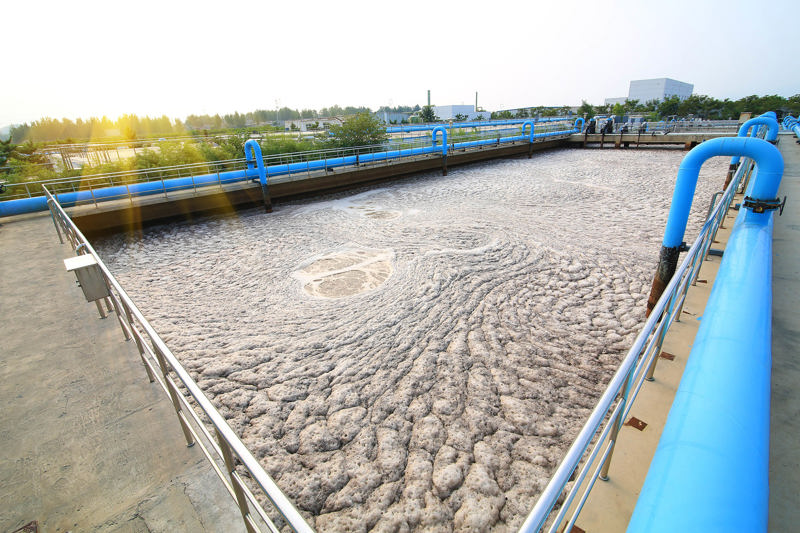Waste and sewage businesses: disposal of sewage sludge
What is a cesspool, septic tank or package treatment plant?
 A cesspool is a covered watertight tank used for storing sewage. It does not treat the sewage and relies on road transport for the removal of raw sewage. Cesspools should only be used as a temporary disposal system while a suitable permanent solution is found. You must not use a cesspool in Scotland.
A cesspool is a covered watertight tank used for storing sewage. It does not treat the sewage and relies on road transport for the removal of raw sewage. Cesspools should only be used as a temporary disposal system while a suitable permanent solution is found. You must not use a cesspool in Scotland.
A septic tank is usually a two or three chamber system that partially treats sewage through natural processes. Solids settle and form sewage sludge at the bottom of the tank. The remaining liquid effluent drains from the tank through an outlet pipe. Septic tank sludge is the residual sludge that is removed periodically from septic tanks and other similar installations that treat wastewater.
There are several types of package treatment plants available. Most package treatment plants provide a treatment unit or biological zone where the sewage contacts microorganisms that break down the organic matter in the sewage. Treated sewage effluent discharges to land or water and sewage sludge separates into a settlement tank for periodic removal.
Cesspools, septic tanks and package treatment plants dispose of sewage from domestic, commercial or industrial premises where it is not possible to connect to the public sewerage system.
What you must do
Discharging sewage effluent
Before you discharge sewage effluent from package treatment plants, you must check with your regulator if you need consent to discharge the effluent to land, groundwater, surface water or sewer.
Removing raw sewage
If your business removes raw sewage from cesspools or septic tank sludge, you must:
- be registered as a waste carrier or broker
- comply with your waste responsibilities
- check if you need an environmental permit, waste management licence or registered exemption to spread, treat or dispose of sewage or septic tank sludge
- comply with planning and building regulations.
- Waste carriers and brokers
- Your waste responsibilities
- Contact your local council in Scotland
- Contact Planning in Northern Ireland
Spreading sewage sludge
If you spread sewage sludge on agricultural land you must meet the requirements of the Sludge (Use in Agriculture) Regulations. For more information, see our guidance for agricultural businesses on landspreading sewage sludge.
In Northern Ireland, see section 4 of the DARD code of good agricultural practice for water, air and soil.
DAERA: Code of good agricultural practice for the prevention of pollution of water, air and soil
In Scotland, see section 5 of the Prevention of Environmental Pollution from Agricultural Activity (PEPFAA) Code.
If you spread sewage sludge on non-agricultural land or agricultural land not used for commercial food crops or stock rearing purposes, you may need an environmental permit, waste management licence or registered exemption from environmental permitting or waste management licensing. You should contact your regulator for further information.
- Northern Ireland Environment Agency (NIEA): Paragraph 10A exemption for storing and spreading sludge on non-agricultural land
- SEPA: Waste management licensing exemptions (paragraph 8(2))
Treating sewage sludge
If you treat sewage sludge, you must have:
- a pollution prevention and control (PPC) permit in Northern Ireland
- a PPC permit or waste management licence in Scotland.
For further information, see PPG 4 on treating and disposing of sewage sludge when no foul sewer is available.
GPP 4 Treatment and disposal of sewage where no foul sewer
Landfilling sewage sludge
You cannot dispose of liquid waste at landfill. Liquid waste includes wastewater, but does not include sewage sludge. If you dewater sewage, you can:
- Discharge treated effluent from dewatering to surface water or the sewer for treatment at a sewage treatment works. You will need an authorisation to do this.
- Reuse the water at your site, eg for wetting a composting unit. You will need a pollution prevention and control permit or waste management licence to do this.
- Send the effluent for disposal at another site that is authorised to take the effluent.
You can only dispose of sewage sludge at a landfill that is permitted to accept this waste. The sludge must also meet the waste acceptance criteria for the landfill.
If you send your waste to landfill, you must check that the landfill has a pollution prevention and control permit or waste management licence.
Ask the landfill site operator to show you a copy of their permit. The permit will specify whether the site can accept hazardous, non-hazardous or inert waste. It may also include or exclude specific types of waste.
For further information, see our landfill guidance.
Using sewage sludge as a fuel
If you use sewage sludge to produce energy, see our energy-from-waste guidance.
